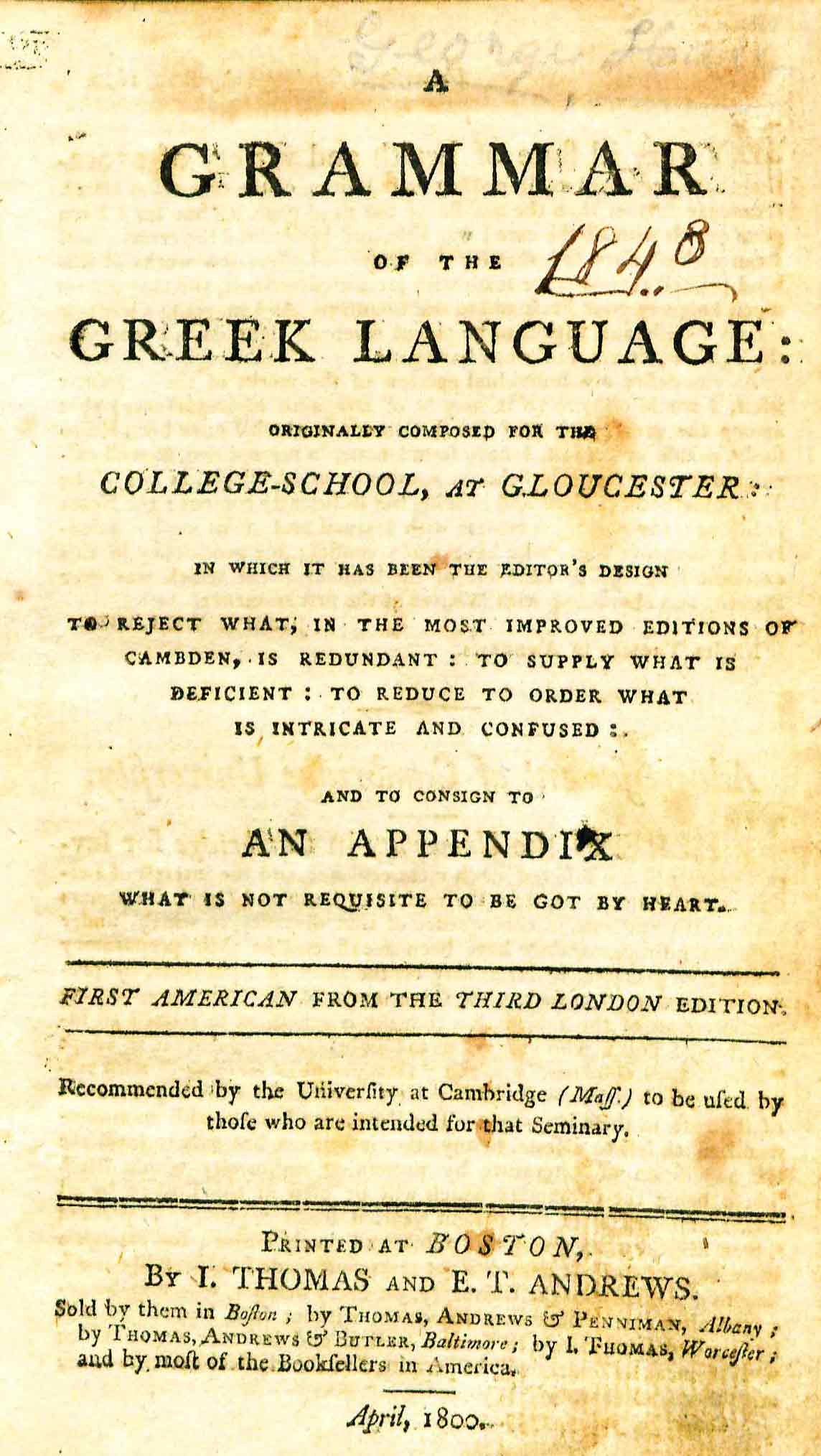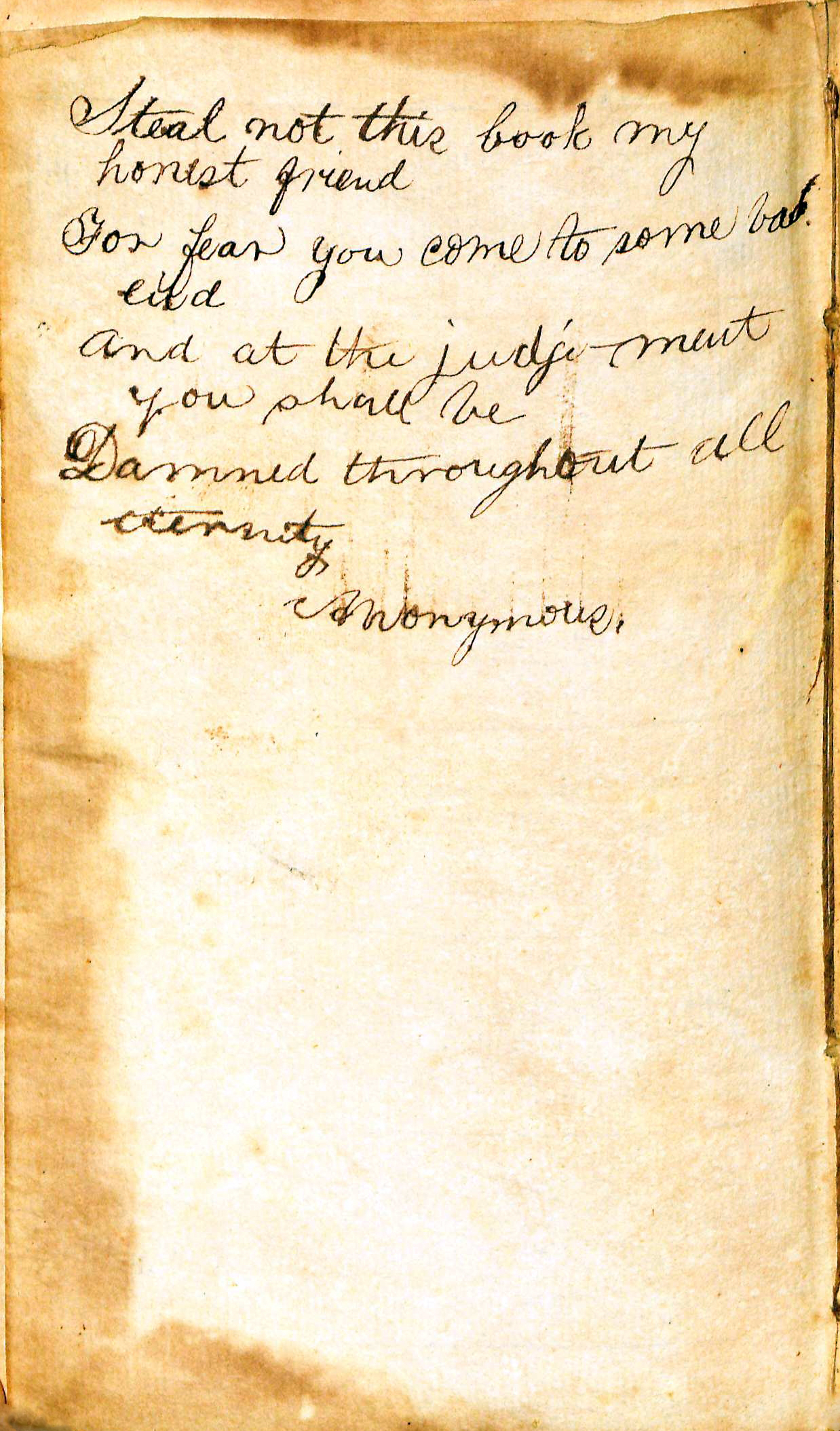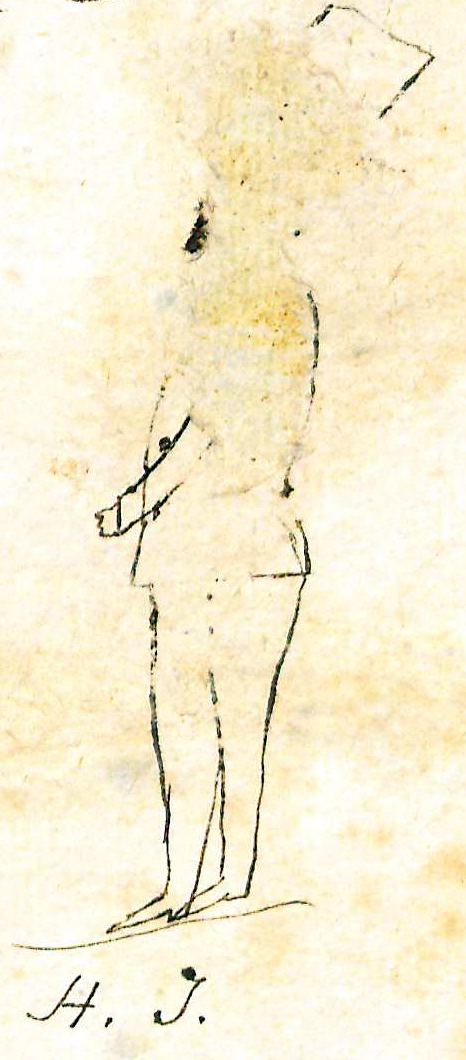Difference between revisions of "Grammar of the Greek Language"
(fn edits) |
|||
| Line 15: | Line 15: | ||
|pages=2 p.l., 123 (i.e. 223), [1] | |pages=2 p.l., 123 (i.e. 223), [1] | ||
|desc=8vo (19 cm.) | |desc=8vo (19 cm.) | ||
| − | }}[[File:GrammarofTheGreekLanguage1800Inscription2.jpg|left|thumb|250px|<center>Poem, rear free endpaper verso.</center>]][http://en.wikipedia.org/wiki/William_Camden William Camden] (1551-1623) was an English author and historian whose finest work was his production of the first topographical survey of England, titled ''Britannia'' and published in 1595. After receiving his education, Camden was appointed second master of [http://en.wikipedia.org/wiki/Westminster_School Westminster School], and eventually headmaster.<ref>''Encyclopædia Britannica Online'', s. v. [http://www.britannica.com/EBchecked/topic/90745/William-Camden | + | }}[[File:GrammarofTheGreekLanguage1800Inscription2.jpg|left|thumb|250px|<center>Poem, rear free endpaper verso.</center>]][http://en.wikipedia.org/wiki/William_Camden William Camden] (1551-1623) was an English author and historian whose finest work was his production of the first topographical survey of England, titled ''Britannia'' and published in 1595. After receiving his education, Camden was appointed second master of [http://en.wikipedia.org/wiki/Westminster_School Westminster School], and eventually headmaster.<ref>''Encyclopædia Britannica Online'', s.v. "[http://www.britannica.com/EBchecked/topic/90745/William-Camden William Camden]," accessed October 31, 2013.</ref> In 1597 Camden was appointed [http://en.wikipedia.org/wiki/Clarenceux_King-of-Arms Clarenceux king-of-arms] and was relieved of schoolmaster’s chores and given more time for writing.<ref>Walter H. Godfrey with Sir Anthony Wagner, "[http://www.british-history.ac.uk/report.aspx?compid=118255 Clarenceux King of Arms]," ''Survey of London Monograph 16: College of Arms, Queen Victoria Street'' accessed from ''British History Online'' October 31, 2013.</ref><br /> |
<br /> | <br /> | ||
| − | After beginning work on ''Britannia'' in 1577, Camden spent almost all of his free time traveling England to collect material for the book.<ref>''Encyclopædia Britannica Online'', s. v. "William Camden."</ref> ''Britannia'' was a county-by-county description of Great Britain and Ireland. It was particularly influential because of the depth in which it described the various parts of England, including information on landscape, geography, antiquarianism, and history.<ref>Ibid.</ref> In 1615 Camden published a history of Queen Elizabeth’s reign.<ref>Ibid.</ref><br /> | + | After beginning work on ''Britannia'' in 1577, Camden spent almost all of his free time traveling England to collect material for the book.<ref>''Encyclopædia Britannica Online'', s.v. "William Camden."</ref> ''Britannia'' was a county-by-county description of Great Britain and Ireland. It was particularly influential because of the depth in which it described the various parts of England, including information on landscape, geography, antiquarianism, and history.<ref>Ibid.</ref> In 1615 Camden published a history of Queen Elizabeth’s reign.<ref>Ibid.</ref><br /> |
<br /> | <br /> | ||
''Britannia'' was by far Camden’s most influential piece of writing, but in 1595 he published a Greek grammar textbook, ''Grammar of the Greek Language'', which was used extensively in secondary schools. ''Grammar'', as well as his historical account of Queen Elizabeth, also proved to be very influential during his lifetime and beyond.<ref>Ibid.</ref> | ''Britannia'' was by far Camden’s most influential piece of writing, but in 1595 he published a Greek grammar textbook, ''Grammar of the Greek Language'', which was used extensively in secondary schools. ''Grammar'', as well as his historical account of Queen Elizabeth, also proved to be very influential during his lifetime and beyond.<ref>Ibid.</ref> | ||
==Evidence for Inclusion in Wythe's Library== | ==Evidence for Inclusion in Wythe's Library== | ||
| − | Listed in the [[Jefferson Inventory]] of [[Wythe's Library]] as ''Greek grammar of Gloucester. 8vo.'' and kept by [[Thomas Jefferson]]. Jefferson later sold the same title to the Library of Congress in 1815, but the volume no longer exists to verify the edition or Wythe's prior ownership.<ref>E. Millicent Sowerby, ''Catalogue of the Library of Thomas Jefferson'', 2nd ed. (Charlottesville: University Press of Virginia, 1983), 5:70 [no.4757].</ref> Both the [https://digitalarchive.wm.edu/handle/10288/13433 Brown Bibliography]<ref> Bennie Brown, "The Library of George Wythe of Williamsburg and Richmond," (unpublished manuscript, May, 2012) Microsoft Word file.</ref> and [http://www.librarything.com/profile/GeorgeWythe George Wythe's Library]<ref>''LibraryThing'', s. v. "Member: George Wythe," accessed on April 28, 2013 | + | Listed in the [[Jefferson Inventory]] of [[Wythe's Library]] as ''Greek grammar of Gloucester. 8vo.'' and kept by [[Thomas Jefferson]]. Jefferson later sold the same title to the Library of Congress in 1815, but the volume no longer exists to verify the edition or Wythe's prior ownership.<ref>E. Millicent Sowerby, ''Catalogue of the Library of Thomas Jefferson'', 2nd ed. (Charlottesville: University Press of Virginia, 1983), 5:70 [no.4757].</ref> Both the [https://digitalarchive.wm.edu/handle/10288/13433 Brown Bibliography]<ref>Bennie Brown, "The Library of George Wythe of Williamsburg and Richmond," (unpublished manuscript, May, 2012) Microsoft Word file.</ref> and [http://www.librarything.com/profile/GeorgeWythe George Wythe's Library]<ref>''LibraryThing'', s.v. "[http://www.librarything.com/profile/GeorgeWythe Member: George Wythe]," accessed on April 28, 2013.</ref> on LibraryThing list the Boston first American edition (1800) of William Camden's ''A Grammar of the Greek Language'' based on E. Millicent Sowerby's entry in ''Catalogue of the Library of Thomas Jefferson''. The Wolf Law Library purchased a copy of the same edition. |
==Description of the Wolf Law Library's copy== | ==Description of the Wolf Law Library's copy== | ||
Revision as of 10:30, 28 April 2014
A Grammar of the Greek Language: Originally Composed for the College-School, at Gloucester, in Which it has been the Editor's Design to Reject What, in the Most Improved Edition Of Cambden, is Redundant, to Supply What is Deficient, to Reduce to Order What is Intricate and Confused, and to Consign to an Appendix What is not Requisite to be Got by Heart
| A Grammar of the Greek Language | |
|
Title page from A Grammar of the Greek Language, George Wythe Collection, Wolf Law Library, College of William & Mary. | |
| Author | William Camden |
| Editor | John Snelling Popkin |
| Published | Boston: by I. Thomas and E.T. Andrews |
| Date | 1800 |
| Edition | First American from Third London |
| Language | English |
| Pages | 2 p.l., 123 (i.e. 223), [1] |
| Desc. | 8vo (19 cm.) |
After beginning work on Britannia in 1577, Camden spent almost all of his free time traveling England to collect material for the book.[3] Britannia was a county-by-county description of Great Britain and Ireland. It was particularly influential because of the depth in which it described the various parts of England, including information on landscape, geography, antiquarianism, and history.[4] In 1615 Camden published a history of Queen Elizabeth’s reign.[5]
Britannia was by far Camden’s most influential piece of writing, but in 1595 he published a Greek grammar textbook, Grammar of the Greek Language, which was used extensively in secondary schools. Grammar, as well as his historical account of Queen Elizabeth, also proved to be very influential during his lifetime and beyond.[6]
Evidence for Inclusion in Wythe's Library
Listed in the Jefferson Inventory of Wythe's Library as Greek grammar of Gloucester. 8vo. and kept by Thomas Jefferson. Jefferson later sold the same title to the Library of Congress in 1815, but the volume no longer exists to verify the edition or Wythe's prior ownership.[7] Both the Brown Bibliography[8] and George Wythe's Library[9] on LibraryThing list the Boston first American edition (1800) of William Camden's A Grammar of the Greek Language based on E. Millicent Sowerby's entry in Catalogue of the Library of Thomas Jefferson. The Wolf Law Library purchased a copy of the same edition.
Description of the Wolf Law Library's copy
Bound in contemporary full leather. Includes multiple signatures: "Charles T. Hildretch, Six Mile Road, 1812" on the front free endpaper, "George Hall" on the title page, "John Hrasen, 1812," "William Magee," and "Samuel Smith" on the rear flyleaf. Also has the stamp of "The Grove, Morden Aylesford, Nova Scotia." on the front free endpaper. The verso of the rear free endpaper features the manuscript poem:
Steal not this book my honest friendThe rear pastedown revises the poem with the lines "Steal not this book my honest friend for fear this gallows will be your end." and a drawing of a man in a top hat with the initials "H. J." below. Purchased from David M. Lesser.
For fear you come to some bad end
Anonymous.
And at the judgement you shall be
Damned throughout all eternity
View this book in William & Mary's online catalog.
References
- ↑ Encyclopædia Britannica Online, s.v. "William Camden," accessed October 31, 2013.
- ↑ Walter H. Godfrey with Sir Anthony Wagner, "Clarenceux King of Arms," Survey of London Monograph 16: College of Arms, Queen Victoria Street accessed from British History Online October 31, 2013.
- ↑ Encyclopædia Britannica Online, s.v. "William Camden."
- ↑ Ibid.
- ↑ Ibid.
- ↑ Ibid.
- ↑ E. Millicent Sowerby, Catalogue of the Library of Thomas Jefferson, 2nd ed. (Charlottesville: University Press of Virginia, 1983), 5:70 [no.4757].
- ↑ Bennie Brown, "The Library of George Wythe of Williamsburg and Richmond," (unpublished manuscript, May, 2012) Microsoft Word file.
- ↑ LibraryThing, s.v. "Member: George Wythe," accessed on April 28, 2013.


